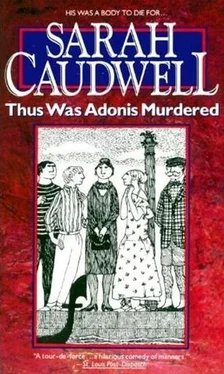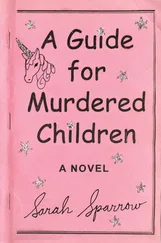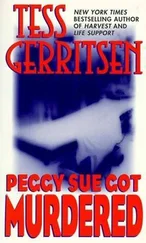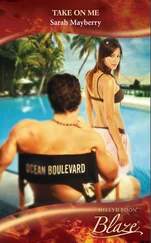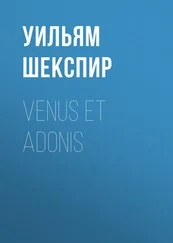Ragwort looked sceptical; but agreed to stop at the first post office we passed and telephone Selena to tell her that all was well and that Marylou should proceed with her journey. In the meantime I took the opportunity to send those telegrams which I thought necessary to ensure that on the following day everyone would be in the right place at the right time.
“This idea of yours about Bruce and Eleanor,” said Ragwort afterwards, “is it what you really believe, Hilary?”
“I would suggest,” I answered, “that it is not unworthy of your consideration.”
It is very wrong to tease Ragwort; but one cannot always help it. My readers will not have doubted for a moment that the theory was pure moonshine; I mentioned at the beginning of Chapter 6 that the designs of Eleanor and the Major on the personal effects of the late Miss Tiverton had not caused or contributed in any way to the murder, and my readers will not suppose that I would deceive them in such a matter.
“I take it,” said Ragwort, as he left me at Islington, “that we shall be seeing you in Chambers tomorrow?”
“Yes,” I said. “But not unduly early. Nothing can happen before eleven o’clock.”
Nothing could happen before eleven o’clock. The instructions in my telegram to Timothy had been clear: whatever time Marylou arrived at the café beside the Accademia, he was not to approach her until eleven-thirty — it would then, by English time, be half past ten. After that, it could scarcely take less than half an hour for people and events to move towards the point of resolution; and if things fell out as I expected, there would be some further delay before Timothy was able to telephone with news of them. Timothy does not always show that unquestioning acceptance of my judgement which one would hope to see in a former pupil; but I had relied on him to think it prudent, presented with a fait accompli, to abide to the letter by my instructions. Nothing, therefore, could happen before eleven o’clock. All the same—
At half past nine on Friday morning I found myself climbing the stone stairs which lead to the second floor of 62 New Square. The members of the
Nursery were already gathered in the largest of its three rooms, Ragwort and Cantrip at their desks, Selena in the large leather armchair. Ragwort had been explaining, it seemed, the theory I had suggested to him on the previous afternoon. It was not going down well — they all looked despondent.
“If I was advising a client,” said Cantrip, “I’d say that if that’s our case we jolly well ought to settle.”
“I understand,” said Ragwort, “that one cannot dispose of a criminal charge by way of compromise. I suppose one can offer to plead guilty to manslaughter if they’ll drop the more serious charge.”
“I dare say,” said Selena, “that one would so advise a client. But this is not a matter where we should allow our professional judgement to interfere with our personal feelings.”
I assured them that there was no need for anxiety and that matters were proceeding satisfactorily.
“Well, I’m glad you think so, Hilary,” said Cantrip. “As far as I can see, they’re proceeding with total loopiness. Even if there’s anything in this idea that Eleanor’s in cahoots with the Bruce chap — and personally I think it’s a dead loss — it still wouldn’t get us anywhere, because we don’t know who the Bruce chap is. And why on earth you think he’s still in Venice—”
“And even if he is,” said Ragwort, “why you think Marylou’s going to recognize him—”
“I don’t,” I said.
“But Hilary,” said Selena, with something less than her customary composure, “you have led Marylou to believe—”
“Nonsense,” I said. “I have done nothing of the kind.”
“But we were discussing,” said Selena, “how we could find out who Bruce was and you asked Marylou if she could go to Venice.”
“Ah yes,” I said. “I remember now that you were discussing something of that kind. It was, however, mere coincidence; I was paying but little attention. No, I don’t expect her to recognize Bruce. My dear children, it is surely clear to you by now that Bruce does not exist?”
They were rather cross with me, on two alternative grounds, apparently; that Bruce did exist and I was wantonly deceiving them; or, if he did not, that by some remarkable alchemy I had mischievously caused his nonexistence. Such expressions as “frivolous dilettante” and “irresponsible academic” were freely used. They quietened at last, however, to the point of demanding an explanation.
“I suppose,” I said, “that none of you have ever studied the science of textual criticism and that you are all, therefore, unfamiliar with the principle of the lectum difficillimum?”
“You suppose,” said Selena, “correctly.”
“Very well. I shall begin accordingly with a brief exposition of that principle.”
“I say, Hilary,” said Cantrip, “do you absolutely have to?”
“Yes. I must begin by reminding you that a great part of Scholarship consists of the study of ancient or medieval documents. It is but rarely, however, that we are fortunate enough to have available the original manuscript in the hand of the author. The older the document, the more probable it is that we shall have to rely on a copy. Or a copy of a copy. So multiplies the possibility of error, through the carelessness or ignorance of the copyist. The reconstruction in such cases of the original — the discovery of the correct reading — that is the art of textual criticism.”
“A moment ago,” said Ragwort, “you called it a science.”
“It is both an art and a science. It demands the exercise, to the highest degree, of every aspect of human genius. It requires the most rigorous logic, the most diligent application of experience, the most heroic flights of creative imagination.”
“Yes, Hilary,” said Selena. “I’m sure it does. Could we return to the point?”
“Certainly. As I would by now have explained, if Ragwort had abstained from captious interruption, there have been developed by scholars versed in the art or science of textual criticism certain principles. Among the most important of these is that of the lectum difficillimum —that is to say, that the most difficult reading is to be preferred. Suppose, to take a simple case, that you have variant readings between two copies of the same manuscript, one using a very common word and the other an unusual one. You may conclude without hesitation that the version using the rarer word is correct. The mistake in the other can be explained by a copyist misreading an unfamiliar word for one which is known to him — that is the most natural thing in the world. The reverse, on the other hand, is inconceivable.”
“Hilary,” said Selena, “please—”
“The same phenomenon, of course, occurs in the context of the spoken word. We all know, for example, that Cantrip, being, due to the deficiencies of his education — for which, as I have always said, he is rather to be pitied than censured — unfamiliar with the term ‘rococo’, is under the impression that there is a style of architecture known as rocky cocoa — after, I suppose, some beverage of popular consumption in Cambridge.”
“What,” said Ragwort, “has all this to do with Julia?”
“It has everything to do with Julia. And everything to do with Bruce. For you will remember that the only evidence of Bruce’s existence is a conversation between Eleanor and Kenneth as overheard by Julia.”
“But there is,” said Ragwort, “no alternative reading. We have no other account of the conversation.”
“No direct account, no. There is, however, secondary evidence which conflicts with Julia’s, in that both Eleanor and Kenneth deny knowing anyone called Bruce. We must consider, therefore, the possibility of an error in Julia’s account. Reporting the conversation in oratio obliqua, she tells us that Eleanor said that Bruce had stolen an armchair and a rococo mirror which she rather liked. The precise words, presumably, which Julia thought she heard were, ‘Bruce stole an armchair and a rococo mirror which I rather liked.’ ”
Читать дальше
